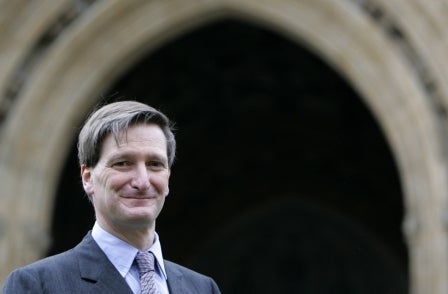
Attorney General Dominic Grieve has told MPs new legislation will be needed to implement Leveson’s controversial proposal that those arrested, but not charged, should not be named in the press.
In December’s report Leveson said it should be made “abundantly clear” that the names of those arrested or suspected of a crime should not be released to the press “save in exceptional and clearly identified circumstances”.
When asked for his thoughts on the proposal in Parliament this week, Grieve told MPs that it “may be something to be incorporated in press regulation”.
“The current position on the law of contempt is that proceedings are active from the time of arrest,” said Grieve.
“Those considerations are not identical to those that Lord Justice Leveson was considering, but they raise the issue that after arrest the press has to have in mind the possible impact on the fairness of the trial process thereafter.
“That could include naming a suspect; equally, it might be perfectly acceptable to do that.”
Tory MP Robert Buckland claimed there was “continuing concern” over the “almost habitual naming of suspects after arrest”, which he believes has potential to cause “real prejudice”.
He urged the Attorney General to do “all he can to monitor the current situation and ensure that the law is prosecuted to its full effect”.
Grieve replied that while he was mindful that many contempt cases related to the period between arrest and charge, if MPs wanted to change the rules on anonymity – an idea previously floated by members – it could only be done by enacting legislation.
Grieve added: “However, let me make it quite clear that this would need a legislative solution, not one that I can in some way ‘magic up’. The law of contempt has to be applied free of all political considerations, and that is what I try to do as best I can.”
At present there is no specific law preventing the police from identifying those they have arrested, though the Association of Chief Police Officers advises against the practice.
Likewise, there is no law preventing forces from confirming the identity of someone who has been arrested. Police forces generally give the name, age and details of the charge at the point of arrest.
Last month Press Gazette reported on how journalists were blaming the impact of the Leveson Inquiry for a police refusal to confirm the identity of a high-profile suspect questioned in relation to the Jimmy Savile child abuse investigation.
One unnamed reporter told Press Gazette that a “really horrendous mistake” could be made if the police continued refusing to provide guidance to reporters in sensitive cases.
Author Mick Hume has also criticised Leveson’s recommendations.
He said: “No doubt part of the intention here is to prevent a repeat of what happened to Christopher Jefferies, landlord of murdered Joanna Yeates, who was monstered by newspapers when arrested.
“But there have been countless other cases where the role of the press in identifying those arrested or suspected of serious crimes has been crucial in informing the public, aiding the police and keeping the criminal justice process open to scrutiny.”
Grieve has taken a hard line on newspapers breaching contempt laws since the Tories came to power in 2010.
In a 2011 lecture he said the press had “shown an increasing tendency to test the boundaries of what was acceptable in reporting criminal cases”, adding: “At times it appeared to me the press had lost any sense of internal constraint and felt able, indeed entitled, to print what they wished, shielded by the right of 'freedom of expression' without any of the concomitant responsibilities.”
Among cases pursued against the press include prosecutions against The Sun and Daily Mail, who both published pictures of the defendant in a murder trial carrying a gun on the their websites.
The Daily Mirror and Sun were fined over their coverage of the arrest of Chris Jefferies, the landlord of murdered landscape architect Joanna Yeates, with the court ruling that articles published by both papers would have been extremely damaging to Jefferies and his defence.
Email pged@pressgazette.co.uk to point out mistakes, provide story tips or send in a letter for publication on our "Letters Page" blog






